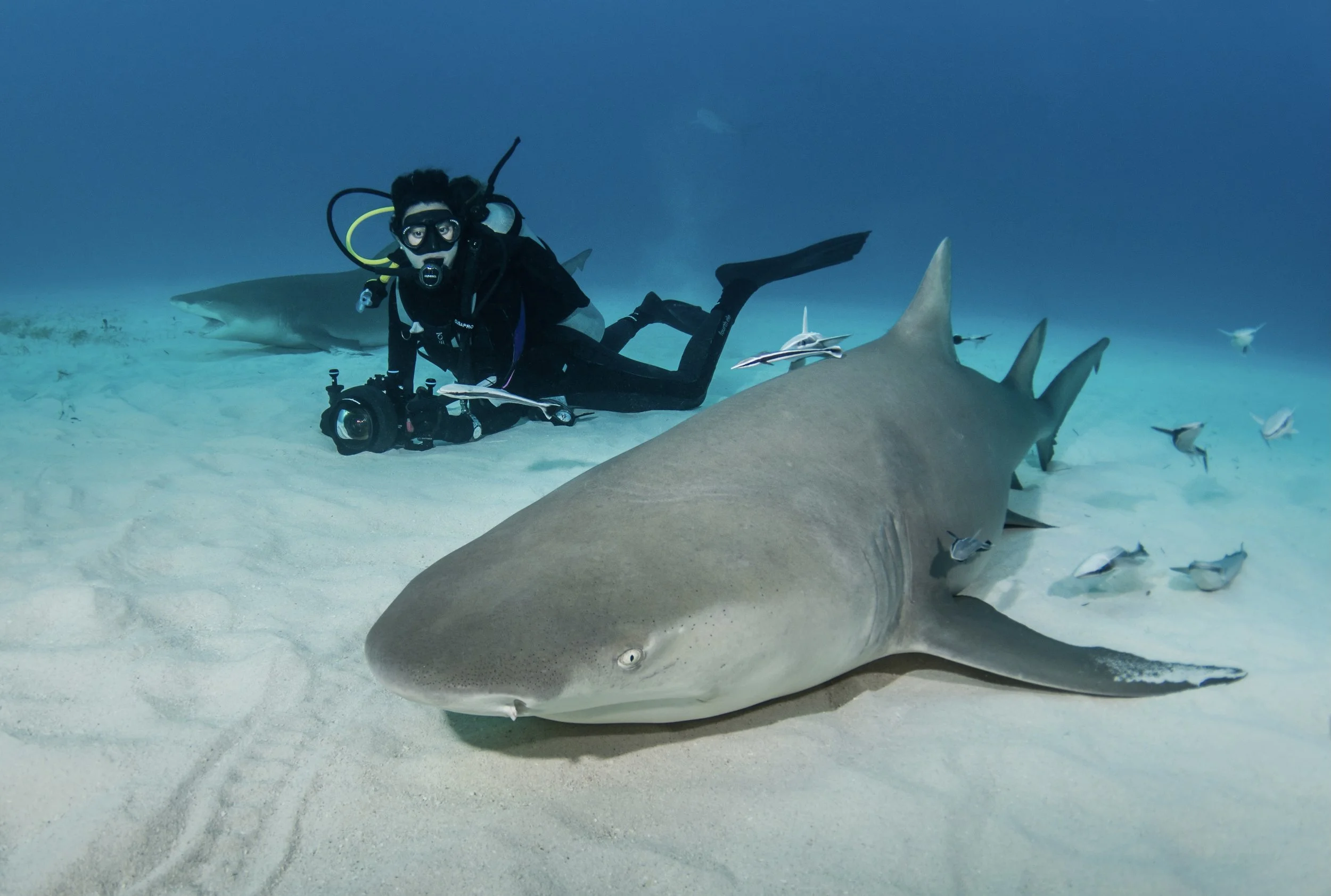
Lemon Sharks in the Field and Underwater: A Biologist’s Perspective
My first experience working with lemon sharks (Negaprion brevirostris) began during my time at the Bimini Biological Field Station (Shark Lab), where I spent seven months conducting research as part of my undergraduate biology studies. My main research project focused on the effects of coastal development on the spatial ecology of juvenile lemon sharks around Bimini. Fieldwork included tagging, tracking movements, and gathering environmental data to assess how human activity influences shark behavior and habitat use.
In addition to my own project, I contributed to other long-term studies on juvenile growth, survival, and behavior within known nursery areas. These foundational experiences introduced me to field techniques in shark science and deepened my understanding of lemon sharks’ ecological role in coastal ecosystems.
In 2012, I participated in an expedition to Tiger Beach in the Bahamas, where I had the chance to observe and interact with adult lemon sharks. At that time, I was new to shark diving practices and, like many divers early in their careers, I lacked a full understanding of appropriate shark interaction protocols. During those dives, I occasionally made physical contact with the sharks, not as a form of harassment, but out of a lack of proper training. Through that experience, I observed an unusual behavior: when I gently touched the area where remoras were attached, some lemon sharks would return and present the same area again, seemingly using divers to help dislodge the remoras. While this was a striking observation, I now recognize the importance of minimizing human contact with wildlife. Today, I do not promote or engage in touching sharks during dives, and I actively encourage responsible, non-invasive shark diving practices.
Lemon sharks have been a consistent focus in my early scientific and diving career. As a species with strong site fidelity and well-documented nursery grounds, they are especially vulnerable to environmental change but also ideal for long-term ecological monitoring. Understanding both their behavior and their interaction with humans is essential for developing effective conservation strategies.
These combined research and diving experiences have shaped my professional focus on shark conservation through applied science, education, and responsible marine tourism.



